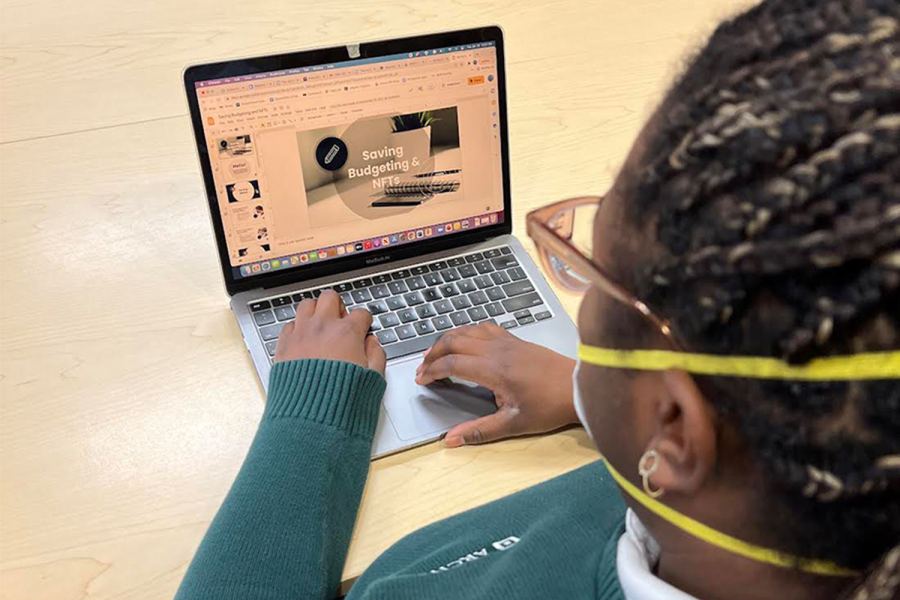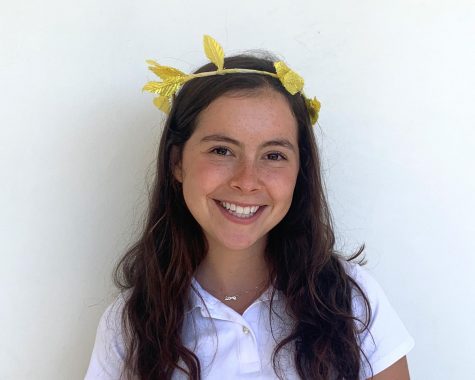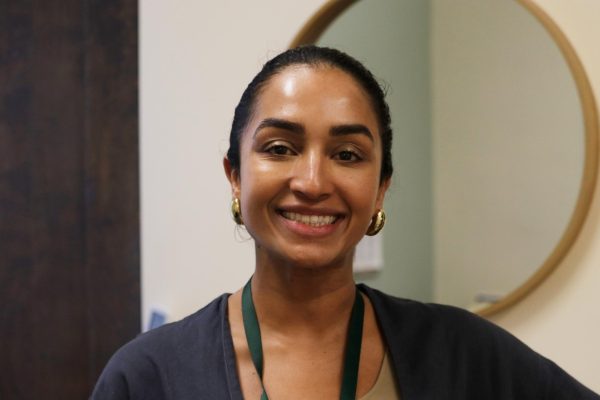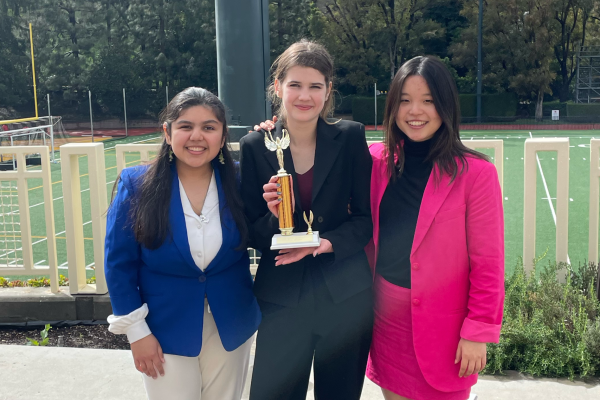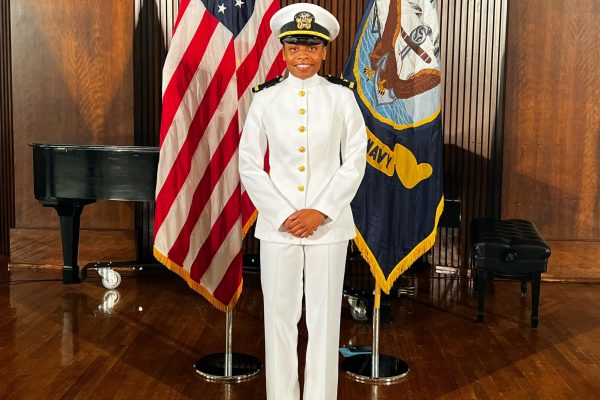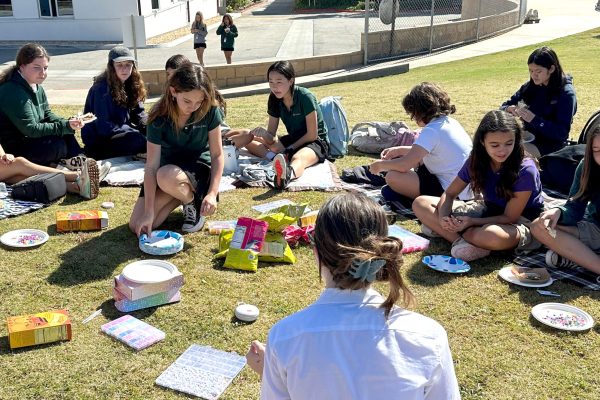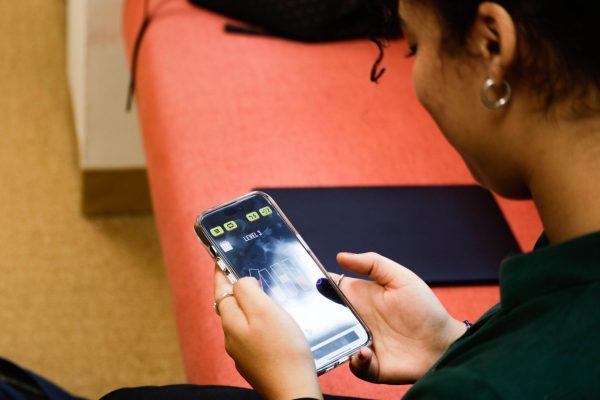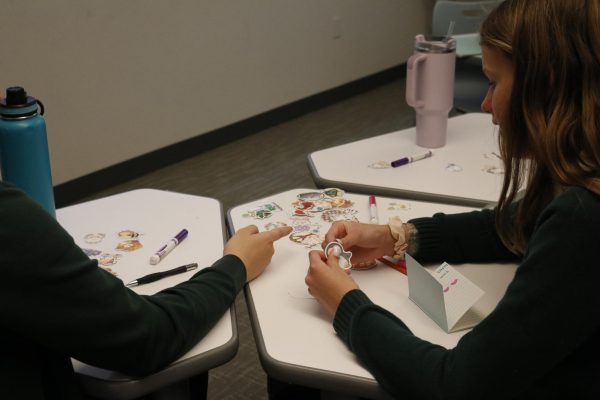Money makers: Financial literacy classes help students manage money
Photo credit: Rose Sarner
Zoe Griffin (’23) prepares a slide show discussing how to properly budget for the Billionaires Girls Club. Griffin hopes to empower younger women and make them more confident in their financial endeavors.
February 23, 2022
“What am I going to do when I graduate?”
“How will I save my money?”
“Why can’t I just stick with my parents’ plan?”
These are all questions that nervously circle the halls of many middle and high schools. In recent years, Associate Head of School for Teaching & Learning Karen Pavliscak led optional financial literacy classes for students to join. However, Pavliscak realized that only students who were passionate about understanding how money can be used as a tool were attending these classes. This year, Pavliscak has strategically designed mandatory grade-level workshops to ensure that every student has the baseline foundation to understand financial wellness and how to use money mindfully.
“I want to set a strong foundation. I want to inculcate a sense of curiosity to know more, and I want students to have perspective on how their mindful choices impact their financial wellness,” Pavliscak said. “I’ve done a lot of research, and I have looked through, I would say, dozens of financial literacy curriculums, and I’d handpick the things that I think are most interesting that would work for the girls that I know here at Archer.”
Over the past few years, Pavliscak has brought a variety of skilled financial literacy experts to speak at Archer and interact with her courses. Pavliscak said many experts do not understand how to expand upon students’ established understanding rather than teaching an entire new idea.
“I am working to understand what I know about how girls learn and thrive and how I can bring in elements of financial wellness to support their ongoing learning. That’s the piece that I think I’ve offered now,” Pavliscak said. “The next step is bringing in financial experts to then take it to the next level. I like talking about money from a place of big picture instead of, ‘How do you write a check?'”
Junior Zoe Griffin started taking Archer’s financial literacy classes in ninth grade, and from there, she started her own club with fellow junior Samantha Garibaldi called, the Billionaire Girls Club. The club aims to educate girls about how they can be financially independent and self-sufficient.
“I want to teach students how to manage their money and how to invest so that they know how to deal with money, which is something that’s so important in all aspects of life,” Griffin said. “I just want to promote independence and to help people learn about something that they wouldn’t normally learn about in a normal school day.”
Similarly, Garibaldi started taking Pavliscak’s financial literary classes over Zoom last year, which sparked Garibaldi’s interest in wanting to further learn about ways she can not only support herself, but her fellow community as well.
“My goal is to teach young girls how to be more comfortable when talking about money and understand that it’s a very important part of one’s financial future and stability,” Garibaldi said.
The 10th, 11th and 12th grade human development classes at Archer briefly address students’ worries about effective management regarding money These periods focus on defining key terms such as debt, credit score, taxes and credit cards.
“I know that a lot of times, girls specifically, aren’t taught about these things. I wanted to make a difference in the way that girls are taught about money and think about money,” Griffin said.
According to The Wall Street Journal, there is a large gap in financial involvement between men and women because of the lack of financial education women are receiving. The amount of women who say their biggest fear isn’t marketing volatility is 41% while, 28% of men say their biggest fear isn’t marketing volatility. Moreover, nearly 91% of women say they trust their instincts when it comes to having children, while only 56% trust them when it comes to investing.
Pavliscak said the financial literacy classes provide building blocks for all students to become more comfortable in making financial decisions. These classes will ensure students feel more confident in sufficiently managing their money.
“This is just the first step in bringing in outside experts and really rallying girls to consider finance not only as a future career, but to have healthy habits going into their adulthood,” Pavliscak said. “The thing that makes me most excited is that every girl here at Archer has a clean slate that she is building that last her a lifetime. You’re building those healthy habits, and you’re making mindful choices so you can live the life you want, and for that, I’m incredibly hopeful.”





![Freshman Milan Earl and sophomore Lucy Kaplan sit with their grandparents at Archer’s annual Grandparents and Special Friends Day Friday, March 15. The event took place over three 75-minute sessions. “[I hope my grandparents] gain an understanding about what I do, Kaplan said, because I know they ask a lot of questions and can sort of see what I do in school and what the experience is like to be here.](https://archeroracle.org/wp-content/uploads/2024/03/grandparents-day-option-2-1200x800.jpg)













































